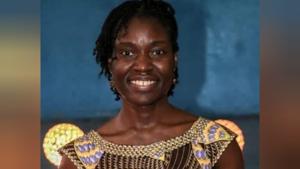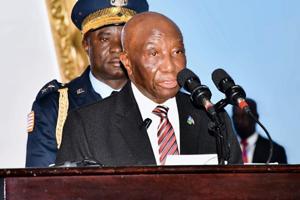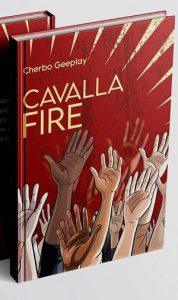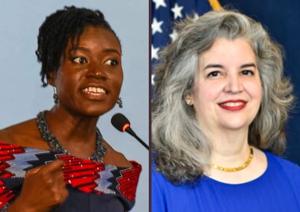This old Soldier: Jerry Rawlings
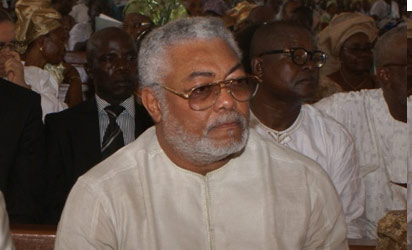
By Denrele Animasaun
‘Until the average Ghanaian recognises the need to show responsibility first to himself, his family, his environment and his community, we will continue to experience economic, social and political poverty’- Jerry John Rawlings
The man, the myth and the legend that was Jerry John Rawlings has taken his leave off this mortal coil and his departure took many people across the globe by surprise. I had to check several sources to verify that this news was not fake. It was not. They say, old soldiers never die, that they just fade away. That was not true with Jerry Rawlings. He was always a man of action even at the age of 73, always leading from the front; some say he was the king maker, he had the influence in politics at the same time, very active and visible in social media, there was news about when he got out of his car and he directed traffic, he was receiving dignitaries in his office until his office was closed as a result of Covid.
Jerry Rawlings, the son of a Ghanaian father and a Scottish mother, he was no doubt 100 % Ghanaian and proud of it. Jerry Rawlings was a name that struck fear into many of his foes and admiration in equal measure from the ordinary Joe on the street. He was liked and loathed depending on who had benefited from the people’s revolution. Some may argue that he did transform and rebuild the consciousness of Ghanaians, just as Nkrumah did. I will not argue at all. Even in his advancing years, he cut a fine figure, he was a good looking man.
He felt he had an opinion that was worth a mention and he gave it, be it on police brutality in Nigeria and the End Sars protest or congratulating Biden and Harris on their election success. This was not a man, who was going away. No, it was not. This old soldier that was feared and contributed in some part to the stability of Ghana, had become an elder statesman, he was enjoying the autumn of his years, he was a family man and up until September, when he lost his 101year old mother. She was his backbone and he was bereft when she passed.
Do not let his beguiling appearance fool you, he came to power in bloody coups. Yes, not one, plural. This gentile and gregarious man led the cleansing of Ghana’s corrupt regime. It was not pretty, in fact it was grizzly. He was responsible for scores of politicians who were summarily executed for corruption. Jerry vehemently defended his integrity and honour he, was not responsible for the kidnappings or execution, that this were the work of hot headed junior officers that he had no control over them. Whatever the truth, we would never know.
“If you’re going to live, leave a legacy. Make a mark on the world that can’t be erased – Maya Angelou
On May 15, 1979, one flight lieutenant led a group of junior Ghanaian army officers in an attempted overthrow of the military government of General F.K. Akuffo and the Supreme Military Council.
Like a leader Rawlings, he ,Rawlings, confirmed he was responsible for the coup, and he was imprisoned and court-martialled. He was destined to be executed if not for the actions of junior military officers who sprung him out of prison on June 4. They were not going to leave him to take the fall.
As if the forthcoming coup was not enough,he and his officers embarked on cleansing the country of corruption ‘he was released from prison by junior “housecleaning exercise”.
Under his command of the Armed Forces Revolutionary Council they executed eight senior military officers, including three former heads of state—Akwasi Afrifa, Ignatius Acheampong, and Akuffo.
Again in 1981, he labelled Limann and his associates as “a pack of criminals who bled Ghana to the bone,” He vowed to “organize this country in such a way that nothing would be done, whether by God or the devil, without the consent and the authority of the people.”
After the military rule, he continued to be in front and centre of the political landscape of Ghana.
READ ALSO: Rawlings urges Togo to uphold democratic principles
He founded—the National Democratic Congress and he morphed into a civilian head of state, and the country developed into a unified and prosperous country.
We know because we witnessed the influx of Ghanaians flooding into Nigeria during the tumultuous times and going back home, after Rawlings’ ‘cleansing’.
The call was to Ghanaians to come and build their nation and in their droves, they did. It was argued that Rawlings’ revolution was not bloody as it was morally. It was raising awareness of Ghanaians and they became responsible for success of the nation. It was hard and millions left when the financial squeeze became unbearable.
He argued the only way for the country and its citizens; and reasserting national morality was the only productive way forward, he argued. These same moral arguments, however, were used to justify the executions in 1979 and the widely-condemned assassination of Supreme Court justices who had ruled against the People’s National Defence Council (PNDC) after Rawlings’ “second coming.” Rawlings and the PNDC further empowered Local Defence Committees (LDCs) to root out corruption at the community level. The result was a form of democratic authoritarianism to which all citizens were subject.
He has a Robin Hood allure about him and with the working class and seen as one of one of the country’s best presidents. Ask the ordinary Joe on the street, he is as one of their own. They understood the only way Ghana was to change was with a stern and authoritative might. Rawlings had that in spades.
Rawlings did transform the nation and successfully transited into a civilian head of states with the revolution a revolution of the people with the National Democratic Congress.
He was shape shifter and despite the violent beginnings he carved a political role for himself that is beyond politics.
He never stopped sharing his opinion when neibouring countries had issues . Rawlings emerged as a powerful influence over conversations about corruption, democracy, and development in Nigeria. Rawlings himself had spoken out publicly in support of the Buhari government, while also urging that national leaders respect the will of the people. Nigerians, however, took to Twitter to call for a Rawlings-style coup to respond to corruption in the Buhari government.
A dab hand on twitter both as a subject as the handler of sagacious knowledge, he became the oracle, he was consulted on all manner of subjects from politics to altruism. Rawlings was trending on Twitter across the continent after getting out of his car to direct traffic in Accra. The acclaim for “Papa J” was overwhelming. “This should be an example to all African presidents. You can serve your people, leave power with dignity, still live free and respected amongst your people,”
He congratulated the US Biden/Harris win and also advised the Nigerian Government on the #EndSARS protest.
Maybe, most old soldiers do fade away but this old soldier will be remembered for taking Ghana to a place of prominence. For that Africa and people of colour owe him a safe journey to the ancestral plane.
Friends, Romans, countrymen, lend me your ears;
I come to bury Caesar, not to praise him.
The evil that men do lives after them;
The good is oft interred with their bones;
So let it be with Caesar- Shakespeare
The post This old Soldier: Jerry Rawlings appeared first on Vanguard News.


